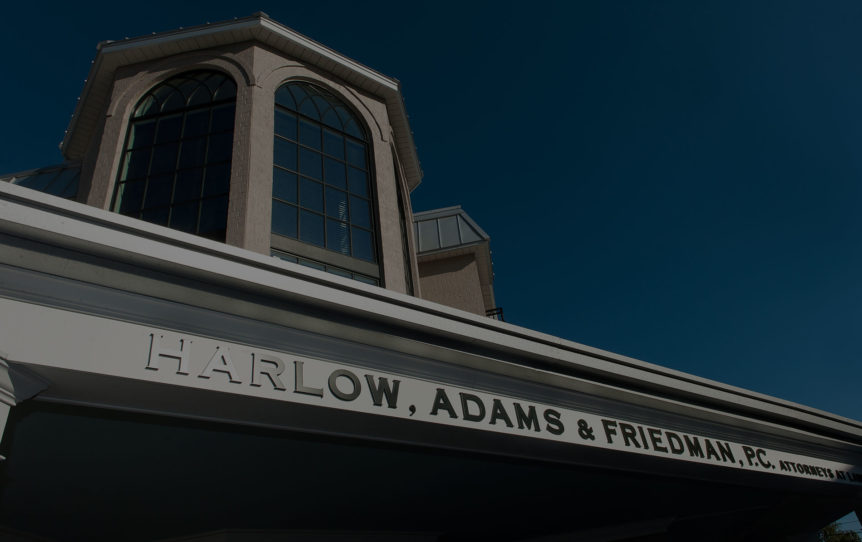Under Connecticut General Statutes, Section 54-56e, “there shall be a pretrial program for accelerated rehabilitation of persons accused of a crime or crimes or a motor vehicle violation or violations for which a sentence to a term of imprisonment may be imposed, which crimes or violations are not of a serious nature.” When an individual is charged with a crime in the State of Connecticut, the Defendant has some options that he or she should consider. The first option is pleading guilty, which more than likely would lead to a criminal record unless and until an individual applies for and is granted a pardon.
However, in certain instances, if the crime committed by the Defendant is not deemed of a serious nature under the law, the Defendant may be entitled to participate in a pretrial diversionary program called, “Accelerated Rehabilitation.” If a Defendant applies and is admitted to the Program by the Court and fully satisfies any and all obligations and conditions placed upon him, the charges pending against the Defendant will be dismissed.
At the first court appearance, a Defendant has the opportunity to meet with the State’s Attorney and review any evidence that the State’s Attorney has against them, including a copy of the arrest/incident report. Anything said to the State’s Attorney can be used against him or her at trial so an attorney is highly recommended. At this first court appearance, it will also be determined whether a Defendant is “Statutorily Prohibited” from entering the Accelerated Rehabilitation Program. Statutory Prohibition applies to anyone:
- [C]harged with a class A felony, a class B felony, except a violation of section 53a-122 that does not involve the use, attempted use or threatened use of physical force against another person, or a violation of section 14-227a, subdivision (2) of subsection (a) of section 53-21, section 53a-56b, 53a-60d, 53a-70, 53a-70a, 53a-70b, 53a-71, 53a-72a, 53a-72b, 53a-90a, 53a-196e or 53a-196f; (2) to any person charged with a crime or motor vehicle violation who, as a result of the commission of such crime or motor vehicle violation, causes the death of another person; (3) to any person accused of a family violence crime as defined in section 46b-38a who, (A) is eligible for the pretrial family violence education program established under section 46b-38, or (B) has previously had the pretrial family violence education program invoked in such person’s behalf; (4) to any person charged with a violation of section 21a-267 or 21a-279 who (A) is eligible for the pretrial drug education program established under section 54-56i, or (B) has previously had the pretrial drug education program invoked in such person’s behalf; (5) unless good cause is shown, to any person charged with a class C felony; or (6) to any person charged with a violation of section 9-359 or 9-359a.
If the Defendant does not fall into one of the above categories, the Defendant may be considered, “Program Eligible,” and can apply for the Accelerated Rehabilitation Program at their first court date. The Defendant will be required to answer specific questions posed by the Court regarding Program eligibility. A new Court date will be scheduled, and the Defendant will also be required to provide notice to any and all victims of the crimes charged.
At the second scheduled court date, any victim who has received notice and has appeared in Court on that date will have the ability to speak to the Court about the Defendant’s application to the Program and the Court will take that testimony into consideration in its decision on whether the Defendant is “Program Eligible.” If the Court decides that the Program is appropriate for that Defendant, the Court will provide conditions that the Defendant must complete for a specified amount of time in order to successfully complete the Program. Such conditions may include, but are in no way limited to: psychological evaluation and/or therapy, community service and restitution for any out of pocket expense and damages for any of the victims of the crime(s) that the Defendant is charged with.
A final Court appearance will be scheduled by the Court from anywhere between a few months and a year or more. If the Defendant has successfully completed all of the conditions set forth by the Court at this next Court appearance, the charges against the Defendant will be dismissed.
Being charged with a crime is a serious event but it does not have to follow you in the form of a criminal record for the rest of your life. An experienced attorney may be able to either have the charges against you dropped, or obtain your entrance into the Accelerated Rehabilitation Program which can eventually lead to the dismissal of your charges and leave you with no criminal record. If you have been charged with a crime in Connecticut, please call the experienced criminal counsel at Harlow, Adams & Friedman, P.C. today at 203-878-0661 for a free consultation.
Contact Us For a Free Consultation
